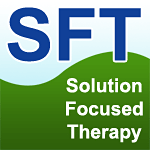Welcome
to Scotland's Premier Therapy and Holistic Personal
Development Site
'Therapeutic care
& Personal Development - The solution to your problems is in
you'

Nutritional
Therapy Edinburgh and Glasgow
What
is Nutrition?
Nutritional
advice is a huge area covering prevention, treatment and understanding.
There
are also a range of seemingly conflicting theories and ideas relating
to
nutrition. Therefore this web page only gives a small snap shot of what
is
involved and what is provided.
Why
seek nutritional advice?
Classic
reasons for seeking advice from a nutritional therapist include:
Overweight
and wanting to loose excess body fat.
Underweight
and needing to gain healthy body mass.
Sports
requirements, requiring more energy, or a different body fat ratio.
Difficulty
in balancing elements such as cholesterol, fat levels, salt levels,
sugar
levels.
Persistent
or repetitive health concerns such as low energy, poor immune system
performance, lack of sleep.
High
blood pressure, low blood pressure, poor adrenal gland support.
Many
of the above are either medical or medical related conditions. In these
cases it
is essential that you seek medical advice in addition to addressing
your diet. A
good nutritionalist works alongside your doctor by helping you to
address
dietary concerns. It is not however a substitute for medical treatment
or
advice. In additional weight control requires dietary and exercise to
be taken
into account.
How
does it work?
The
nutritional therapist will take a case history and get other details
from you,
such as health, exercise levels, aims and objectives, mental state. Other
information such as blood type are useful.
From
the data collected the nutritional therapist will plan out a course of
healthy
diet and possibly supplements in order to achieve healthy objectives.
Where
needed you will be referred to your medical doctor for any safety
checks or
medical advice.
Where
possible blood type, personal taste, culture, sports, health, family
history and
other pertinent topics will be considered in order to build a
personalised
dietary plan.
Detoxification
The
body builds up a range of toxins, mental and physical. Detoxification
is an
essential part of recovery and well-being.
So
why not buy a diet book instead?
Most
people who seek professional support have already tried that! Most
people find out the simple truth that diets "off the shelf" are not
customised to peoples needs, and are oversimplified and over hyped.
Principles used by many leading diets may well be used as a guide or
base line, however each client has personal, environmental, medical,
cultural and other issues that can result in individual needs.
Diet,
foods, exercise and their effects
A good
nutritionist will have a grounding in other therapies too. A range of
this from stress levels, eating disorders, comfort eating, body image,
self- confidence, sports activities, age and culture all impact on what
is needed by the individual. Therefore the therapist should be able to
address these related issues either personally, or through
colleagues.
Supplements
and Vitamins
Many
clients
are put off taking supplements because of the conflicting advice given
in the media and the medical profession. The RDA (recommended daily
allowance) for vitamin levels is the level frequently quoted as what is
needed. this is far below the Optimum Daily Allowance, and far below
therapeutic levels of vitamins and supplements. Common sense applies:
if you take more out of your body (through sports, illness dieting etc)
then you need to put more in! The more complicated side of this is
choosing the right and safe supplements for you. it is useful to have a
trained professional taking an overview of what you are taking, to
ensure safety, and a sensible combination of products. Some
combinations cancel in effect, others complement, some may have safety
concerns in combination.
Natural
therapies
The
principle
of nutritional advice means that a range of other therapies including
meditation, relaxation, hypnotherapy, psychotherapy, life coaching,
Reiki healing, crystal healing, herbalism, Ayurveda and counselling all
work well as part of, or alongside it.
What
is Herbalism?
Herbalism
is the use of various plants and herbs for their balancing, cleansing
and
healing properties.
How
are herbs used?
Most
people think of herbalism treatments as being primarily about taking
herbal
pills, capsules or teas. However the range of treatments is far larger
than
that. Herbs can be used in cooking, poultices, creams, ointments,
lotions, oils,
baths and much much more.
How
does it work?
Herbalism
works on a number of levels. However in holistic herbalism the herbs
can be used
for stand alone purposes, for example pain relief. However as well as
symptomatic
relief, herbs are used to treat the whole person. Herbal advice
is provided as part of nutritional therapy.
Holistic
Treatment
Most
conventional medicine is based around giving a "pill" or other
treatment for each symptom. Herbs can be used this way too. Indeed most
conventional products (like aspirin) are derived from herbs and plants.
However
in herbalism we are more concerned with getting to the "root" of the
problem by treating the person as a whole. Therefore the whole system
of the
body is addressed, in the hope of taking away the cause of dis- ease in
the
person and strengthening the person's ability to heal themselves.
Can
you combine herbal and conventional treatment?
You
should always seek medical advice for any suspected illness or injury.
Many
people then combine herbal products and treatments with conventional
medical
support. It is important to tell both the medical doctor and the
herbalist what
medications and herbs you are using.
The NOS National Occupational Standards for these topics are the NOS
Herbalism and Healing, with some additional Nutritional related NOS as
well.
We are complementary health
practitioners,
not alternative health practitioners. This means that we work WITH the
medical profession. If you have an illness or injury, or if you are
going to embark on a new diet, fitness plan or if you have any
uninvestigated symptoms, you must consult your medical doctor.
In the first instance drop us an
email or
use the feedback form to contact us. We can then advise whether we feel
we can appropriately assist you.
To
Contact Therapy Services
EASY METHOD:
From 2010 psychological therapy will also contain elements of
mindfulness and CBT in order to increase client development between
sessions.
We adhere to
appropriate National Occupational Standards, carry
professional insurance and support regulation of
therapists. We
support the coming voluntary regulation of psychotherapy and
counselling. Stuart is a CNHC registered hypnotherapist (voluntary
regulation of hypnotherapy).
Would you like to train as
a
professional therapist and gain an award from a fully accredited
awarding body? Click:
HERE
|





